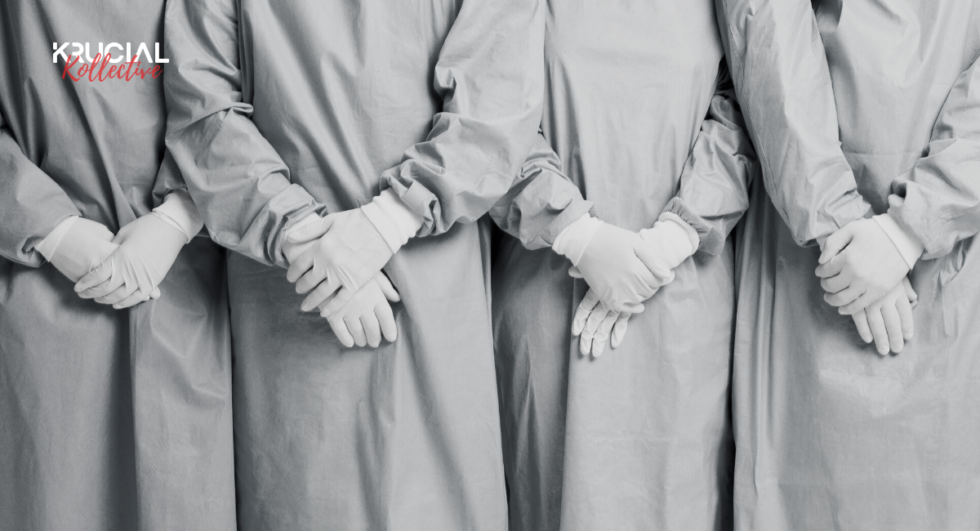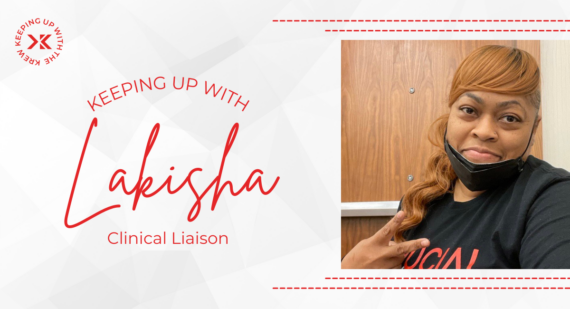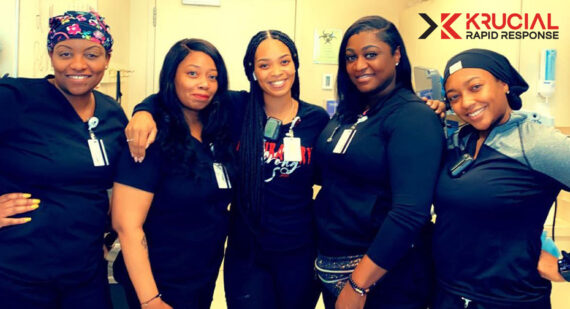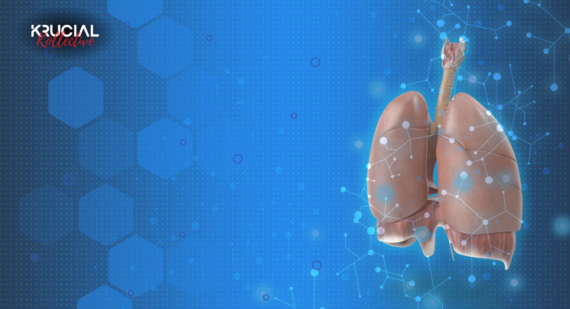
Five Asian American and Pacific Islander Healthcare Professionals Who Have Changed the Industry
By: Maria Burns
Krucial Rapid Response wants to take the time to recognize Asian American and Pacific Islander Heritage Month. Asian American and Pacific Islander Heritage Month recognizes the contributions and influence of Asian Americans and Pacific Islander Americans to the history, culture, and achievements of the United States. The Federal Asian Pacific American Council has selected “Advancing Leaders Through Collaboration” as the theme for 2022. To help bring this theme to life, we are shedding light on five Asian American and Pacific Islander healthcare professionals who have changed the medical industry.
Margaret Chung, MD
Born October 2, 1889, in Santa Barbara, CA, Dr. Margaret Chung became the first Chinese American female physician despite facing racism and sexism in the industry. At an early age, Dr. Chung had an intent to become a medical missionary to China, so she worked her way through school and eventually medical school at the University of Southern California (National Park Service). Unfortunately, her goal of becoming a medical missionary came to a halt due to her rejection based on her race. Luckily, Dr. Chung continued to pursue her goal of helping others and eventually worked her way up to being a medical resident in the Chicago area.
In the early 1920s, Chung moved to San Francisco, CA, where she opened her own clinic with a focus on helping Chinese women. However, the patients Chung was attracting were non-Chinese patients because she was labeled as an “outsider.” Years later, Dr. Chung’s life altered once again when the Japanese invaded China, sparking the Sino-Japanese War (1937 – 1945). During this time, she worked as a surgeon on the frontlines of the Sino-Japanese War and created a unique family for herself with American servicemen. By the end of WWII, Dr. Chung’s “adopted sons” totaled more than 1500 people. Additionally, Dr. Chung gained and used her influence to push for legislation to create WAVES (Women Accepted for Volunteer Emergency Services), a reserve corps for women in the Navy (National Park Service). Unfortunately, she was rejected from the corps and passed away from cancer on January 5, 1959.
David Ho, MD
Taiwanese American physician, Dr. David D. Ho’s work made a significant impact on understanding and treating HIV/AIDS. After immigrating to the US with his family when he was a child, Dr. Ho continued his education by attending the California Institute of Technology. After graduating with a Bachelor of Science in Biology & Physics, Dr. Ho attended Harvard Medical School and earned his MD in 1978. “It was during his internal medicine residency at Cedars-Sinai Medical Center that Dr. Ho first encountered a patient exhibiting symptoms of a mysterious illness that would later be known as HIV (GW Himmelfarb Health Sciences Library).” Fortune favored Dr. Ho by putting him at the right place, at the right time, and working with people who were experiencing symptoms of HIV/AIDS.
Years later, Dr. Ho was noted as the founding Scientific Direct and Chief Executive Offer of the Aaron Diamond AIDS Research Center (ADARC). Eventually, Dr. Ho and his team had a breakthrough in the fight against HIV/AIDS finding treatment options for those diagnosed with this virus. In 1996, Dr. Ho was recognized as Time’s Person of the Year due to his discovery of antiretroviral therapy. “Antiretroviral therapy (ART) is treatment of people infected with human immunodeficiency virus (HIV) using anti-HIV drugs. The standard treatment consists of a combination of drugs (often called “highly active antiretroviral therapy” or HAART) that suppress HIV replication (PAHO).” Due to his groundbreaking, lifelong research, Dr. Ho recently received the National Leadership Recognition Award from the National AIDS Memorial on December 1, 2020, which is World AIDS Day (GW Himmelfarb Health Sciences Library).
Marjorie Mau, MD, MS
A graduate of Kalani High School, Creighton University, and Harvard School of Public Health, Dr. Marjorie Mau became the first woman in Hawai’i to be recognized as a “Master Physician” by the American College of Physicians in 2016. It should be noted Dr. Mau received this recognition a year later than expected due to pregnancy and being unable to travel at the time.
During her time at Creighton University, Dr. Mau discussed back in 2015 how she was the only Native Hawaiian in her graduating class and her class was less than 20% female whereas today that number is continuing to climb (University of Hawai’i at Manoa). Breaking those gender and ethnic standards is an experience Dr. Mau would deem incredible as it led her to spend years working towards improving the health and wellness of communities in Hawai’i. “In addition to treating patients in Molokaʻi and in Honolulu, Dr. Mau is a prolific scientist who has conducted groundbreaking research in metabolic disorders among Native Hawaiians and Pacific Islanders (University of Hawai’i at Manoa).”
Katherine Luzuriaga, MD
Famously known for her research focus on HIV and EBV in children, Dr. Katherine Luzuriaga’s studies have helped “[define] the genetic and biologic properties of viruses that initiate infection and evolve over time following infection (UMass Chan Medical School).” This information provided guidance for Dr. Luzuriaga to develop early diagnostic methods for pediatric HIV infection. “She is now focused on characterizing residual HIV reservoirs in individuals on ART to inform the development of strategies to achieve remission (UMass Chan Medical School).”
After obtaining her undergraduate and master’s degree in Biochemistry at the Massachusetts Institute of Technology (MIT) and her medical degree at Tufts University School of Medicine, Dr. Luzuriaga went on to complete her residency in a pediatric unit in the Floating Hospital for Children. After she successfully finished her clinical and research fellowship, Dr. Luzuriaga went on to become a faculty member at the University of Massachusetts Medical School (UMMS) in 1990. In addition to her research, Dr. Luzuriaga is utilizing her time teaching future generations of clinicians and scientists.
Kazue Togasaki, MD
Born June 29, 1897, in San Francisco, CA, Dr. Kazue Togasaki became one of the first Japanese American women to earn her Doctor of Medicine in the United States. At an early age, Dr. Togasaki faced discrimination and segregation in school due to her race. Then, at nine years old, she experienced a traumatic event that would aid in the inspiration and motivation of Dr. Togasaki to go into the medical field. Unfortunately, the discrimination was still impacting her life and opportunities in healthcare. Even though Dr. Togasaki received a degree from Stanford and was at the top of her class in the nursing program at a Children’s Hospital, she struggled to get hired (National Park Service).
Then the unthinkable happened next – Japan bombed Pearl Harbor on December 7, 1941, causing thousands of people of Japanese ancestry to be removed and sent to internment camps across the West. During this time, Dr. Togasaki set up medical facilities and lead other Japanese professionals to care for those in the camps. After her release in 1943, Dr. Togasaki returned home to continue helping her community. After being named one of the “Most Distinguished Women of 1970” by the San Francisco Examiner, she passed away in 1992 at the age of 95 (National Park Service).
These five medical professionals are constant reminders of the hardships and obstacles Asian Americans and Pacific Islanders face, especially in the medical field. Overcoming racism and sexism to continue to pursue their goal and passion of helping others will continue to have a major impact on the future of modern medicine. Allow these five, along with many other professionals, to be your inspiration when you, too, decide to embark on the same journey towards working in the medical industry.
Interested in contributing to the Krucial Kollective? Send us an e-mail at marketing@krucialrr.org and let us know what you would like to write!
Asian American and Pacific Islander Heritage Month recognizes the contributions and influence of Asian Americans and Pacific Islander Americans to the history, culture, and achievements of the United States.



